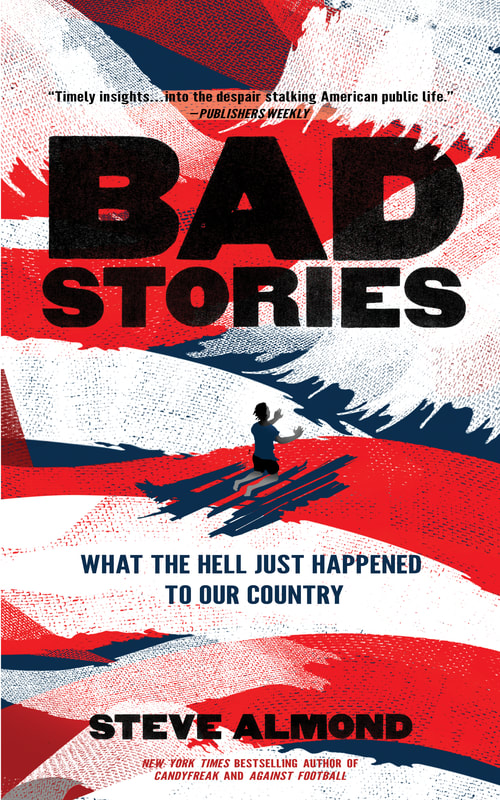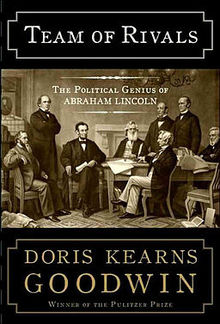
What keeps us humans from seeing the obvious—our smallness and our place on this planet in the context of all that is—and responding rationally? And why do some people see it even though everybody around them does not? These are the questions at the heart of Richard Powers's powerful new novel The Overstory as he attempts to tell us "something [we] need to hear."
This is a book for right now—a time when we face the possibility of the extinction of democracy and the extinction of human life as the planet screams and we ignore it, placing our addiction to consumerism above the right to life of trees and subsequently all living things (including us) who are connected to the lives of trees.
In The Overstory, Powers gives trees, our closest plant relative with whom we share most of our DNA, a voice, a voice that is praying for us to change our ways and let Life live.
Maybe we'll listen; maybe we won't. But for me there is one small consolation: if we don't listen, if we kill ourselves and our environment, life will not end. In the wonderful PBS documentary, Radioactive Wolves of Chernobyl, we get a glimpse into such a future, where twenty-five years after the nuclear meltdown in Chernobyl, scientists have found life flourishing—"a sort of post-atomic Eden, populated by beaver and bison, horses and birds, fish and falcons, and ruled by wolves."

 James Comey is a very good writer, storyteller, and teacher, so on a literary level (except for one odd plot order choice—the highly dramatic John Ashcroft hospital showdown between Comey and Bush representatives—which I suspect has to do with the need to insert a ton of detailed background information), this book works.
James Comey is a very good writer, storyteller, and teacher, so on a literary level (except for one odd plot order choice—the highly dramatic John Ashcroft hospital showdown between Comey and Bush representatives—which I suspect has to do with the need to insert a ton of detailed background information), this book works.

 This book is staggeringly good. I was familiar with Steve Almond from his short stories, but this is straight journalism at its best (which he teaches at Harvard). (It is clear from Almond's thought processes and messages to students, presented in this volume, that he is a great teacher and seasoned journalist.)
This book is staggeringly good. I was familiar with Steve Almond from his short stories, but this is straight journalism at its best (which he teaches at Harvard). (It is clear from Almond's thought processes and messages to students, presented in this volume, that he is a great teacher and seasoned journalist.) Timing is important. There is a time for rage and a time for laughter, and right now rage reigns—as it should. After centuries of suppression, critical mass has been reached, the #MeToo movement has exploded, and male bodies are flying. Time magazine has put it on its cover. It's about time!
Timing is important. There is a time for rage and a time for laughter, and right now rage reigns—as it should. After centuries of suppression, critical mass has been reached, the #MeToo movement has exploded, and male bodies are flying. Time magazine has put it on its cover. It's about time! It's not complicated: "No" means no. "No, I don't want to do that." "No, stop that." "No, I don't think that is funny."
It's not complicated: "No" means no. "No, I don't want to do that." "No, stop that." "No, I don't think that is funny." What really happened? What always happens: Politics, like life, is not fair. Nobody tells the whole truth. Everybody thinks they're right and excoriates everybody who doesn't agree with them. And the best we can do with this mess is try to listen to everybody with an open mind, make the best choices we can—knowing that none of them are perfect, and when we are in peril, choose whatever compromise most assures life.
What really happened? What always happens: Politics, like life, is not fair. Nobody tells the whole truth. Everybody thinks they're right and excoriates everybody who doesn't agree with them. And the best we can do with this mess is try to listen to everybody with an open mind, make the best choices we can—knowing that none of them are perfect, and when we are in peril, choose whatever compromise most assures life. This is a wonderful nuanced book that resonates mightily with and informs what is going on today. Read it if you want to understand any kind of historical basis for what is now happening in the U.S. Read it if you love the minutia of history—every conversation ever recorded during the Lincoln period, every permutation and convolution of the Civil War, the complex emotional motivations behind the factions (a lot of people fought more for preservation of the union than out of any conviction about slavery)—or if you feel as if you need to learn U.S. history. This book has garnered enormous public attention as well as an award-winning movie based on it, so I am not going to write more commentary on what is in it. Instead, here are some opinions about the very important content that is missing.
This is a wonderful nuanced book that resonates mightily with and informs what is going on today. Read it if you want to understand any kind of historical basis for what is now happening in the U.S. Read it if you love the minutia of history—every conversation ever recorded during the Lincoln period, every permutation and convolution of the Civil War, the complex emotional motivations behind the factions (a lot of people fought more for preservation of the union than out of any conviction about slavery)—or if you feel as if you need to learn U.S. history. This book has garnered enormous public attention as well as an award-winning movie based on it, so I am not going to write more commentary on what is in it. Instead, here are some opinions about the very important content that is missing. Much as we like to fancy ourselves superior to sheep and cows, we really have a lot in common: we are a herd species. We have leaders and followers, and to spook us requires a well-placed surprise that the "influencer" members pick up, and ka-boom, stampede. To control us, merely convince the same influencers, and we follow en masse. It's the key to many things — for instance, politics. But first the entertainment. (To get a point across, I've noticed that good shepherds open with enticement.)
Much as we like to fancy ourselves superior to sheep and cows, we really have a lot in common: we are a herd species. We have leaders and followers, and to spook us requires a well-placed surprise that the "influencer" members pick up, and ka-boom, stampede. To control us, merely convince the same influencers, and we follow en masse. It's the key to many things — for instance, politics. But first the entertainment. (To get a point across, I've noticed that good shepherds open with enticement.) First some definitions:
First some definitions: Like many other people, I've been stymied by the fact that facts no longer seem to matter: you can have two photographs of crowds side by side, and someone can call the smaller gathering the larger one with impunity; you can claim to have done more than anybody in history and in fact have done next to nothing; there can exist historical footage quoting you as saying one thing . . . and then the opposite, and you can claim to believe whichever film is more convenient according to the moment. As a friend recently said, "What do you do when it's clearly raining outside and it's now perfectly acceptable to look at it and say, 'It's not raining'?"
Like many other people, I've been stymied by the fact that facts no longer seem to matter: you can have two photographs of crowds side by side, and someone can call the smaller gathering the larger one with impunity; you can claim to have done more than anybody in history and in fact have done next to nothing; there can exist historical footage quoting you as saying one thing . . . and then the opposite, and you can claim to believe whichever film is more convenient according to the moment. As a friend recently said, "What do you do when it's clearly raining outside and it's now perfectly acceptable to look at it and say, 'It's not raining'?"